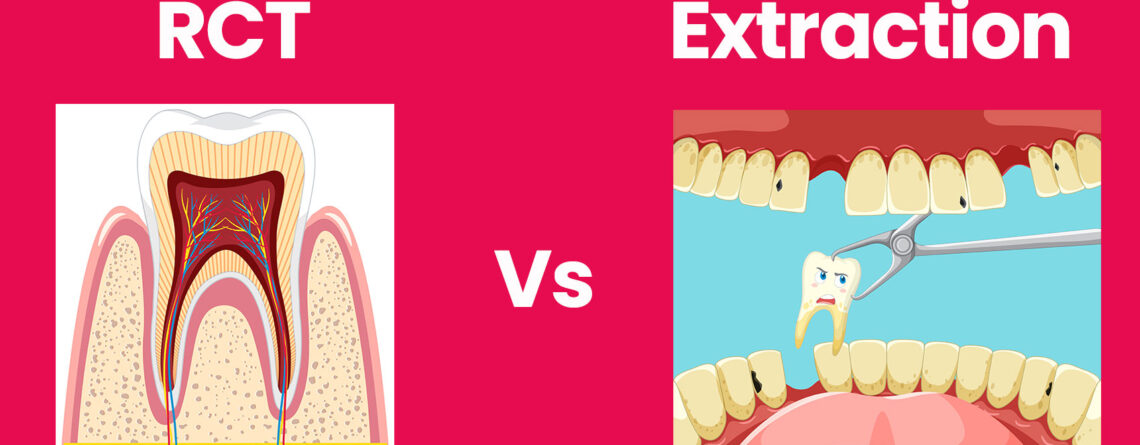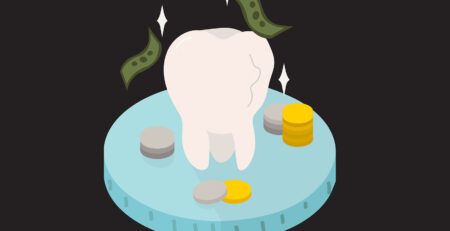Root Canal vs. Extraction: Which Is More Cost-Effective in Delhi?
When dealing with a severely damaged or infected tooth, patients in Delhi often face a critical decision: whether to opt for a root canal treatment or to have the tooth extracted. This decision involves evaluating not only the immediate costs but also the long-term implications for both dental health and finances.
Understanding the nuances of root canal treatment and tooth extraction can help you make an informed choice that balances both your health needs and budget.
This comprehensive article will explore the cost-effectiveness of root canal treatment versus tooth extraction in Delhi, including considerations for capping and restoration. We will also highlight key factors affecting these decisions, using specific keywords like Dental clinic in Delhi, Dental clinic in Lajpat Nagar, and Dental clinic in South Delhi to guide you.
Understanding Root Canal Treatment and Tooth Extraction
What Is Root Canal Treatment?
Root canal treatment is a dental procedure aimed at saving a tooth that is severely decayed, damaged, or infected. The procedure involves removing the infected pulp from inside the tooth, cleaning and disinfecting the root canals, and then filling and sealing the tooth to prevent future infection. Typically, a crown is placed over the treated tooth to restore its strength and functionality.
Key Benefits of Root Canal Treatment:
- Preservation of the Natural Tooth: By choosing a root canal, you maintain your natural tooth, which is beneficial for preserving your overall oral health. A natural tooth helps to maintain the structure of the jawbone and prevents adjacent teeth from shifting.
- Avoiding More Complex Treatments: Keeping the natural tooth avoids the need for more complex treatments such as implants or bridges in the future.
- Less Invasive Option: Compared to extraction and subsequent replacement options, a root canal treatment is generally less invasive and requires a shorter recovery time.
What Is Tooth Extraction?
Tooth extraction is the complete removal of a tooth from its socket in the jawbone. This procedure is usually recommended when a tooth is too damaged or decayed to be saved through a root canal or other means. After extraction, patients may need to consider tooth replacement options like implants, bridges, or dentures.
Key Benefits of Tooth Extraction:
- Immediate Relief from Pain or Infection: Extraction can provide quick relief from the pain or infection caused by a severely damaged or infected tooth.
- Preventing Further Complications: Removing a problematic tooth can prevent the spread of infection to nearby teeth and surrounding tissues, which might otherwise lead to more severe dental issues.
- Potentially Lower Initial Cost: In some cases, the cost of tooth extraction can be lower upfront compared to root canal treatment, especially if no additional procedures are required.
Cost Comparison: Root Canal vs. Extraction in Delhi
Initial Costs
Root Canal Treatment Costs in Delhi:
- The cost of root canal treatment in Delhi can vary widely based on factors such as the complexity of the case and the location of the clinic. On average, root canal treatment cost in Delhi ranges from ₹3,000 to ₹15,000 per tooth. The price may increase if a crown is necessary, with crowns typically costing between ₹4,000 and ₹20,000 depending on the material used.
- Dental clinics in Delhi, especially those located in prominent areas like Lajpat Nagar and South Delhi, offer a range of pricing options. Higher-end clinics with advanced technology and materials may charge more for root canal treatments.
Tooth Extraction Costs in Delhi:
- The cost of tooth extraction in Delhi is generally lower than that of a root canal treatment. Simple extractions can cost between ₹500 and ₹5,000 per tooth. However, more complex extractions, such as surgical extractions, can be more expensive.
- If you choose to replace the extracted tooth with an implant or bridge, the costs can rise significantly. Dental implants in Delhi can cost between ₹15,000 and ₹50,000 per tooth, while dental bridges typically range from ₹10,000 to ₹30,000.
Long-Term Costs
Long-Term Costs of Root Canal Treatment:
- Capping and Restoration: After a root canal, most patients require a crown to restore the tooth’s functionality and appearance. While this adds to the initial cost, it helps to preserve the tooth long-term. A well-maintained root canal-treated tooth with a crown can last a lifetime.
- Maintenance Costs: Regular dental check-ups and good oral hygiene are essential for maintaining a root canal-treated tooth. Occasional costs for crown repairs or replacements are typically minimal compared to the benefits of keeping the natural tooth.
Long-Term Costs of Tooth Extraction:
- Tooth Replacement: One of the significant long-term costs associated with tooth extraction is the need for tooth replacement. Options like dental implants, bridges, or dentures involve additional expenses beyond the initial extraction. Dental implants are the most durable but also the most costly, ranging from ₹15,000 to ₹50,000 per implant. Dental bridges cost between ₹10,000 and ₹30,000.
- Bone Loss and Additional Procedures: Extracted teeth can lead to bone loss in the jaw, which may necessitate bone grafting if you later opt for an implant. Bone grafts typically cost between ₹10,000 and ₹40,000. This adds to the overall expense of tooth replacement.
- Impact on Adjacent Teeth: The extraction of a tooth can lead to shifting of adjacent teeth, potentially causing misalignment and bite issues. This may require orthodontic treatment, adding further costs.
Health Implications: Root Canal vs. Extraction
Oral Health Considerations
Preserving Natural Teeth with Root Canal Treatment:
- Root canal treatment allows you to preserve your natural tooth, which is ideal for maintaining oral health. The natural tooth helps preserve the jawbone’s structure, which prevents bone loss and maintains the appearance of your smile.
- A tooth that has undergone root canal treatment can function just like a healthy tooth, allowing you to eat, speak, and smile with confidence.
Risks Associated with Tooth Extraction:
- Bone Loss: Following a tooth extraction, the underlying bone may deteriorate due to the lack of stimulation. This can lead to changes in facial structure and further dental issues. Bone grafting may be required if you choose to have an implant placed later.
- Shifting Teeth: The loss of a tooth can cause adjacent teeth to shift, potentially leading to misalignment and bite problems. This can create additional dental issues that may require orthodontic treatment.
General Health Considerations
Impact of Delaying Treatment:
- Delaying either root canal treatment or tooth extraction can lead to serious health complications. Untreated infections can spread to other parts of the body, resulting in conditions such as abscesses, sinus infections, and even systemic issues like sepsis.
- Prompt treatment is crucial to avoiding these complications and maintaining overall health.
Quality of Life:
- Root canal treatment preserves your natural teeth, contributing positively to your quality of life. It allows you to maintain the natural appearance and function of your teeth, which is important for eating, speaking, and social interactions.
- Tooth extraction, especially if not followed by proper replacement, can impact your confidence and quality of life. The gap left by a missing tooth can affect your appearance and ability to eat certain foods.
Factors to Consider When Choosing Between Root Canal and Extraction
Condition of the Tooth
- Root Canal Treatment: This procedure is recommended if the tooth is still structurally sound and the infection is localized. If the tooth is severely damaged or the infection has spread extensively, a root canal may be less feasible.
- Tooth Extraction: Extraction is often necessary if the tooth is beyond repair or if the infection is too severe. Extraction may also be recommended if the tooth is fractured below the gum line or if there are other complications that make saving the tooth impractical.
Cost Considerations
- Immediate vs. Long-Term Costs: Although tooth extraction may appear more affordable initially, the long-term costs associated with tooth replacement and potential additional procedures can make root canal treatment more cost-effective over time.
- Insurance Coverage: Different dental insurance plans in Delhi may cover various aspects of root canal treatment and extraction differently. It is important to review your insurance coverage to understand what is included and how it affects your out-of-pocket costs.
Personal Preferences
- Preserving Natural Teeth: If maintaining your natural teeth is important to you, root canal treatment is generally the preferred option. Many patients choose this route to avoid the long-term consequences of tooth loss, such as bone deterioration and shifting teeth.
- Immediate Relief: If you need immediate relief from pain or infection and the tooth is not worth saving, extraction may be necessary. However, planning for a replacement option is crucial to avoid future complications.
Location and Accessibility of Dental Care
- Choosing a Dental Clinic in Delhi: When deciding between root canal treatment and tooth extraction, selecting a reputable dental clinic in Delhi is crucial. Clinics in areas like Lajpat Nagar and South Delhi offer a range of services and expertise. They are known for their high standards of care, experienced dentists, and advanced technologies.
- Accessibility: Consider the convenience of the clinic’s location and the availability of follow-up care. Dental clinics in South Delhi and Lajpat Nagar are well-connected and provide a wide range of dental services, making it easier to manage your dental health effectively.
Comparing Long-Term Benefits
Root Canal Treatment: Longevity and Functionality
- Longevity: A tooth that has undergone a root canal treatment and been restored with a crown can last for many years, often a lifetime. Proper care and regular dental visits contribute to the longevity of the treated tooth.
- Functionality: Root canal-treated teeth function like natural teeth, allowing you to chew and speak normally. They help maintain the alignment of your bite and the overall structure of your mouth.
Tooth Extraction: Replacement and Maintenance
- Replacement Options: If you choose extraction, it is essential to consider the long-term options for replacing the missing tooth. Dental implants, bridges, and dentures each have their benefits and costs. Implants are the most durable but also the most expensive, while bridges and dentures offer different levels of functionality and cost.
- Maintenance: Replacing an extracted tooth requires ongoing maintenance and care. Implants and bridges need regular check-ups, and dentures may require adjustments over time. Additionally, the cost of these replacements can add up, making root canal treatment a potentially more cost-effective choice in the long run.
Conclusion
Deciding between root canal treatment and tooth extraction in Delhi involves careful consideration of both immediate and long-term costs, health implications, and personal preferences. Root canal treatment offers a way to preserve your natural tooth, which can be more cost-effective over time compared to the combined costs of extraction and tooth replacement. On the other hand, tooth extraction may be necessary in certain situations, but it requires planning for replacement options to avoid future complications.
Choosing a reputable dental clinic in Delhi, such as those in Lajpat Nagar or South Delhi, ensures you receive high-quality care and expert advice tailored to your specific needs. Consulting with a knowledgeable dentist will help you make an informed decision that supports both your dental health and financial well-being.
By understanding the costs and benefits associated with both procedures, you can make a choice that aligns with your health goals and budget, ensuring optimal outcomes for your oral health






Leave a Reply